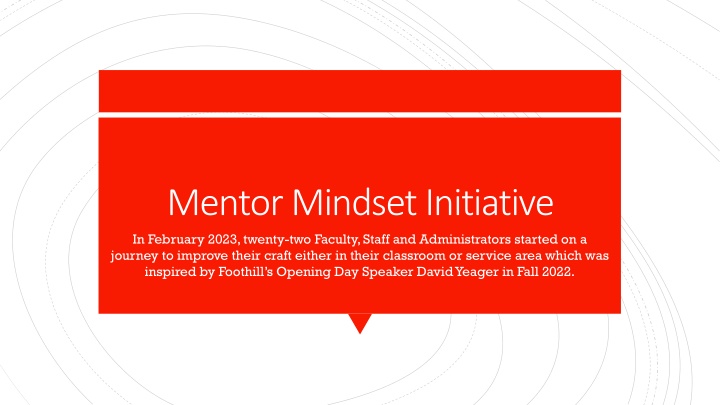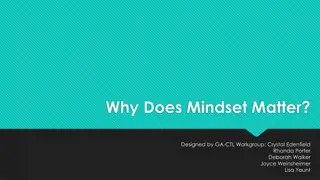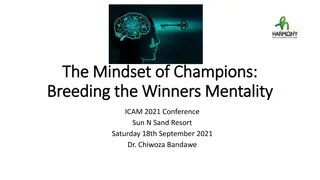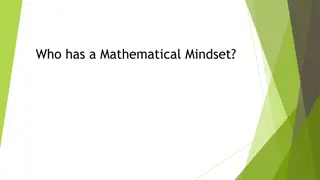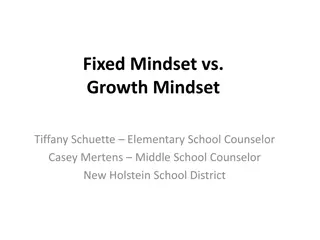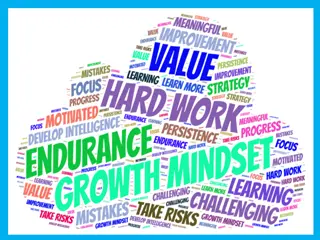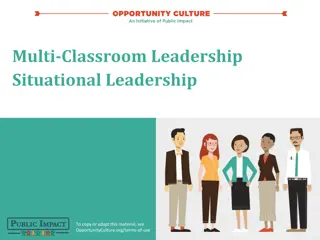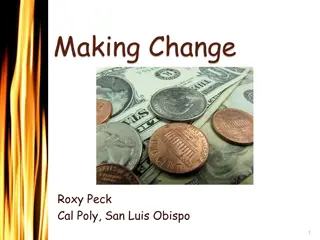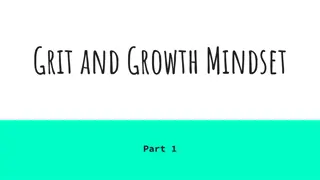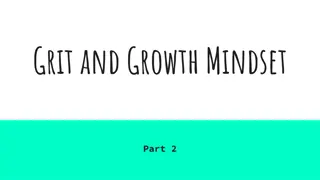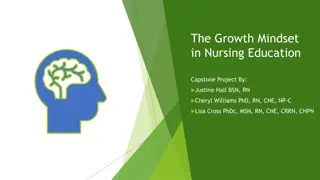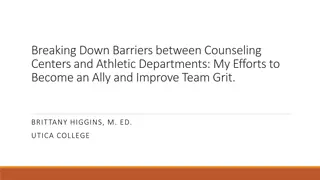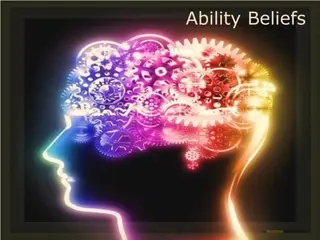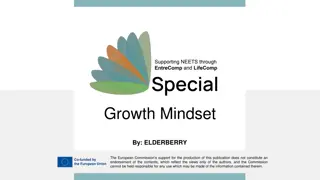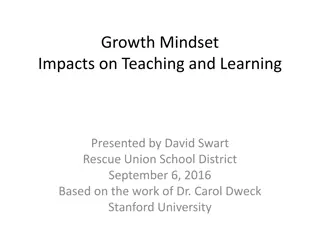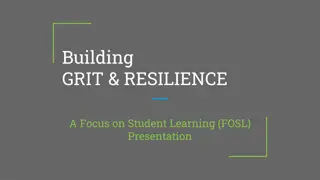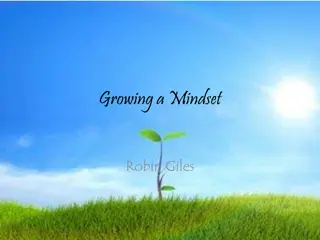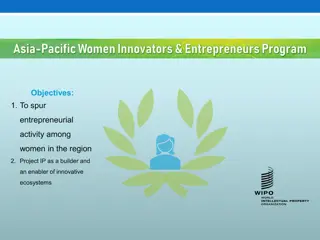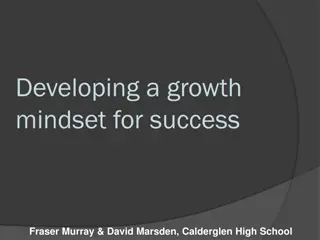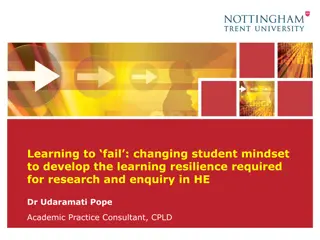Embracing Growth Mindset for Student Success
Faculty, staff, and administrators embarked on a Mentor Mindset Initiative to enhance their craft inspired by David Yeager. Topics explored include belonging, growth mindset, and purpose in learning. Students' ability to embrace challenges is linked to their mindset, with a focus on fostering a growth mindset for success. The societal narrative around learning purpose is discussed, emphasizing the need for a more prosocial motive.
Download Presentation

Please find below an Image/Link to download the presentation.
The content on the website is provided AS IS for your information and personal use only. It may not be sold, licensed, or shared on other websites without obtaining consent from the author.If you encounter any issues during the download, it is possible that the publisher has removed the file from their server.
You are allowed to download the files provided on this website for personal or commercial use, subject to the condition that they are used lawfully. All files are the property of their respective owners.
The content on the website is provided AS IS for your information and personal use only. It may not be sold, licensed, or shared on other websites without obtaining consent from the author.
E N D
Presentation Transcript
Mentor Mindset Initiative In February 2023, twenty-two Faculty, Staff and Administrators started on a journey to improve their craft either in their classroom or service area which was inspired by Foothill s Opening Day Speaker David Yeager in Fall 2022.
BELONGING The persistent worry that people like me don t belong and can t succeed here. GROWTH MINDSET In a growth mindset,people believe that their most basic abilities can be developed through dedication and hard work brains and talent are just the starting point. Three Areas of Work PURPOSE A student s purpose for learning can be the leading motivator to put in the effort to succeed.
The persistent worry that people like me dont belong and can t succeed here Makes even commonplace events attributionally ambiguous: Is this normal, or is this a sign that I can t succeed here? More common for individuals who are given reasons to question their belonging, due to historical or ongoing group-based treatment: Belonging Negatively-stereotyped racial/ethnic minority groups First-generation college students Religious minority students (Walton & Cohen, 2007, JPSP; 2011, Science)
Why do some students embrace challenges and cope well with setback? Mindsets can be the reason A FIXED mindset is a stable trait that cannot be changed, so if you think you are not a math person then a fixed mindset would tell you that you could never change that no matter how hard you work. Growth Mindset A GROWTH mindset is a potential that can be developed. So, no matter where you start there is a belief that you can succeed in anything that you set your mind to with the proper effort. (e.g., Dweck & Leggett, 1988; Hong et al., 1999; Robins & Pals, 2002; Blackwell et al., 2007; Cury et al., 2008; Nussbaum & Dweck, 2008; Moser et al., 2011; Dweck & Yeager, 2019).
Our societal narrative around the purpose for learning is often wrong Too much emphasis on pragmatic, self-interested motives Often, there can be greater emphasis on a self- transcendent, prosocial motive than we think Purpose When we do that, it can help all students, but specially students with more interdependent perspectives The way to pull it off can be tricky: often self-generation is better (Dr. David S. Yeager, UT Austin Department of Psychology, For Foothill Fellowship)
